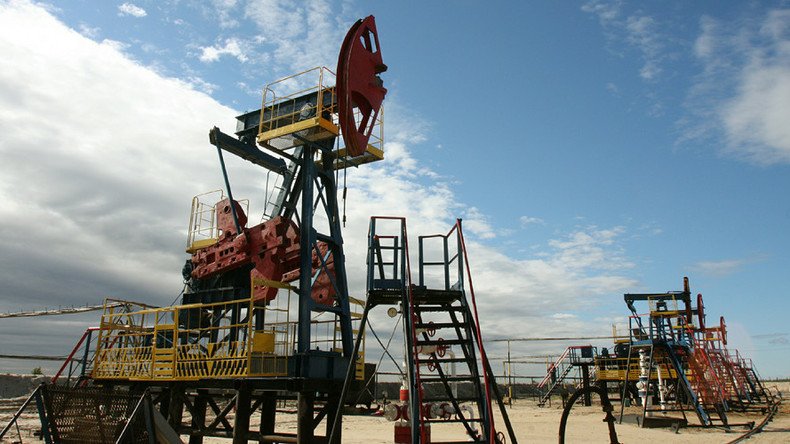Oil prices sink to 7-mo lows on growing global oversupply

On Wednesday, crude prices fell to their lowest level since November as growing US production is undermining supply cuts by OPEC and Russia.
Brent was trading 26 cents down at $45.76 per barrel, while US West Texas Intermediate dropped 20 cents to $43.31.
"The lack of a positive response in oil prices clearly suggests market participants are not convinced that the OPEC's efforts will help shore up prices in a meaningful way in the short-term as shale supply continues to rise in the US," said Fawad Razaqzada, market analyst at futures brokerage Forex.com, as quoted by Reuters.
"Unless we see a marked reduction in crude stockpiles, the possibility of further short-term falls in the price of oil cannot be ruled out," he added.
“It will be hard for Saudi and Russia to keep cutting production in the face of a strong rise in US crude production and output in Libya,” Bjarne Schieldrop, chief commodities analyst at SEB AB in Oslo told Bloomberg.
The United States will report on its crude stockpiles later on Wednesday.
Reuters sources told the news agency that Saudi Arabia, Russia and other OPEC and non-OPEC producers were compliant with the output deal. Compliance reached 106 percent in May, the sources said.
However, while the major producers are committing to the Vienna deal on paper, they increased production right before the deal.
"A number of producers - notably Iraq, Saudi Arabia and Russia - aggressively ramped up output in the run-up to the deal, fast-tracking projects, expanding drilling programs and deploying spare capacity," BMI Research said in a note.
Oil prices are down 22 percent from early January, eclipsing the 20 percent needed to qualify for a bear market.













